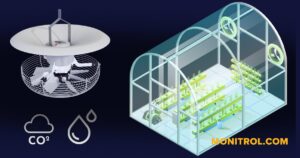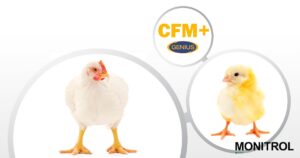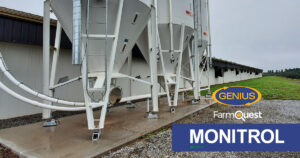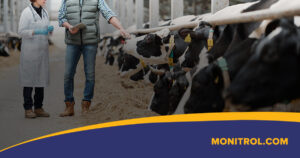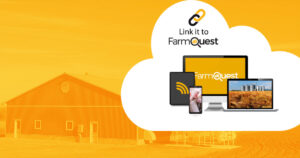CO₂ sensor – a necessity for ensuring a healthy environment
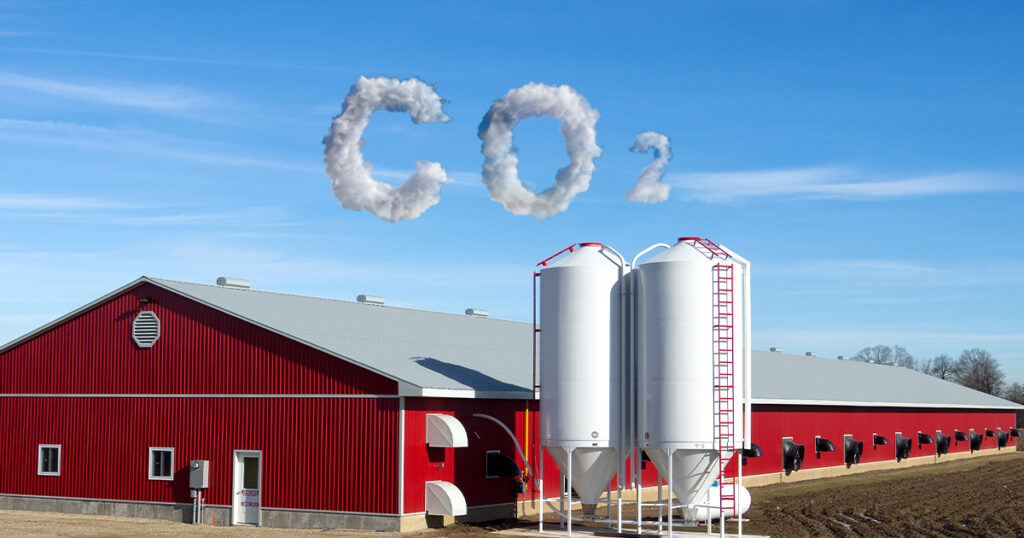
A good CO₂ level is beneficial for animals, plants, and employees!
The CO₂ Sensor is essential for maintaining an optimal environment in your poultry and swine facilities. It provides precise control of CO₂ levels, which is vital for the health and productivity of both poultry and pigs. The ability to quickly adjust ventilation based on CO₂ readings—combined with access to historical data through FarmQuest—enables effective regulation of CO₂ levels. This ensures not only a healthy environment for the animals but also for the employees, while optimizing the timing of necessary ventilation adjustments.
(Reference: Canadian Chicken Producers’ Manual)
Air Quality: Your facilities must be designed to control indoor air quality in the poultry house in response to normal climatic changes. You must ensure:
- Removal of water vapor,
- Elimination of ammonia,
- Elimination of carbon dioxide (CO₂).
A good ventilation system will bring in enough fresh air to maintain a healthy, growing flock. Birds must have an adequate airflow. You should be able to control the air exchange rate and adjust it according to the age and weight of the chickens, based on outside atmospheric conditions.
When systems operate well and are properly adjusted, the litter remains dry, temperatures are uniform, and there are no drafts.
CO₂ is produced by the birds’ respiration and by the combustion of hydrocarbon fuels used by heating equipment. CO₂ levels are more likely to be high during the first week of growth when heating is in use and ventilation is at a minimum. It is recommended to keep CO₂ levels below 3000 ppm.
Impacts of high CO₂ levels: Elevated CO₂ can cause stress and asphyxiation, affecting the overall health of poultry and swine. Stale air can also reduce animals’ resistance to infections, thereby increasing losses and reducing the profitability of your farm.
In dairy production: Improving cow welfare also means increasing productivity.
Monitoring CO₂ levels in your dairy facilities with the CO₂ sensor is essential for animal welfare. This monitoring, combined with the ability to view CO₂ data history on FarmQuest, helps make informed decisions about when and how to adjust ventilation to maintain a comfortable and productive environment for both cows and employees. Rapid ventilation adjustments based on CO₂ data allow effective regulation of CO₂ levels, ensuring not only the health of the animals but also the well-being of staff.
Impacts of high CO₂ levels: Excess CO₂ can cause lethargy in cattle, reduce their appetite, and decrease milk production. Elevated CO₂ concentrations are also associated with an increase in respiratory issues, affecting the long-term health of the herd and raising veterinary costs.
Greenhouse crop production: Boosting growth—isn’t that what every grower wants?!
The CO₂ sensor allows precise control of CO₂ levels in your greenhouses, significantly accelerating photosynthesis and promoting plant growth. Adjusting CO₂ concentrations to optimal levels, with the help of historical reports available on FarmQuest, ensures an ideal growing environment and improves the quality of fruits and vegetables.
Impacts of high CO₂ levels: While CO₂ enrichment can benefit plants, excessive levels may reduce stomatal opening and negatively affect nutrient uptake and water balance, thereby compromising both the quality and quantity of the production.
Why Choose Monitrol Products?
Since 1987, Monitrol has established itself as an undisputed leader in electronic environmental control for the agricultural sector. We offer innovative solutions designed to optimize every aspect of your farming operations. Our cutting-edge products, combined with the strategic use of water meters, are your key to a more efficient, profitable, and sustainable farm.
Contact us today to find out how our solutions can transform your agricultural business.
Don't miss this opportunity to stay informed!
Explore our dedicated page for agricultural professionals and discover practical tips and valuable insights to enhance the quality of your livestock production, streamline your daily tasks, and increase profitability.
Search for a post ?
Recent posts
Newsletter
Stay up-to-date and don’t miss any important information.
Subscribe to our newsletter!

